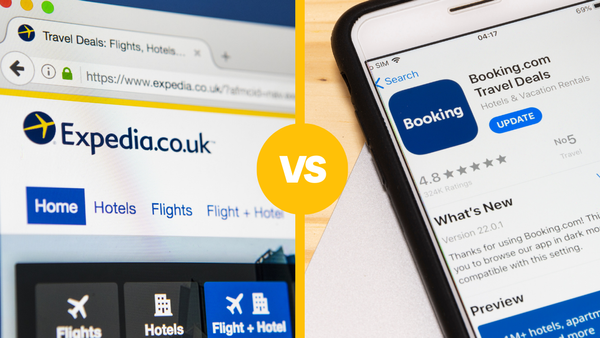What is Channel Management? The Definitive Guide for Hosts

Welcome to the world of short-term rentals, where the right tools make all the difference. This is your starter guide to all things channel management; what it is, how it works, and why you need it.
Both new and veteran hosts in the industry know that for their businesses to thrive they need to get their properties in front of as many eyes as possible. So at some point that means adding it to additional channels, and the more channels you’re working with, the harder it gets to keep the plates spinning.
Channel management software is the solution to that. A channel manager lets you seamlessly connect your property to multiple channels (or OTAs) and manage it all from one place. They’re the go-to way to stay up to date on your day-to-day operations, but also the first and possibly biggest step to optimize revenue.
Let’s get into how a good channel manager works, how it can help you with everything from real-time reporting to promotional channels, and why iGMS is the best channel management solution for you.
What is Channel Management?
It’s the catchall term for how you manage multiple online distribution channels, i.e. Airbnb, Vrbo, Booking.com, and wherever else you’re listed. It entails a centralized platform from which you can operate. Often this means that you manage everything from a dashboard or a similar user interface on the channel manager to support your services.
Why is it Important?
Above all else, channel managers streamline your operations. They cut down on the back-and-forth between multiple channels and make things easier for you by automating a lot of the more mundane processes. On average, hosts report saving 20-30% of their time by automating repetitive tasks. That’s time better spent growing the business or finetuning guest experiences.
Then, of course, there’s the dreaded double booking. No host wants to have that conversation and that’s why a channel manager is your friend. Because you can view your property’s booking calendar for multiple OTAs in one place, you can be more sure there won’t be any overlap between channels and no accidental double bookings.
Lastly, channel management software dips into marketing territory for you by maximizing your exposure. Because they let you list your property on multiple OTAs like Airbnb, Vrbo, Booking.com, and Expedia simultaneously, your property gets seen by far more potential guests, boosting your booking opportunities.

How Do Channel Managers Work?
We’ve established that the main draw of a channel manager is its ability to synchronize calendars across different booking platforms, but there’s more to it.
Since the channel manager provides a single interface, that means that any updates to availability, prices, or booking policies can be made right there on the dashboard and pushed to all the connected channels.
When a guest books or cancels on one platform, the channel manager instantly updates availability on all the other connected channels. This way, double bookings are avoided, and every platform always shows the most recent availability.
It helps set pricing across the board too. The channel manager allows you to use dynamic pricing by adjusting rates according to demand, seasonality, or based on competitors. These changes apply to all the listing channels, so it makes pricing easier to manage by centralizing it and ensuring consistency.

The Main Benefits of Channel Managers
Now that you know a little bit more about how it works, let’s look at the benefits of a channel manager.
1. Boosts Efficiency and Saves Time
Automation and centralized systems save short-term rental hosts a lot of time and hassle by taking care of repetitive tasks, making everything run smoother, and keeping things consistent across channels. Instead of dealing with each listing one by one, hosts can manage everything at once without added stress.
For example, when someone books on one platform, the system automatically updates availability on all others. This means hosts don’t have to manually adjust calendars, which can be slow and lead to mistakes. It also helps avoid double bookings since everything stays up to date in real time.
On the admin side, tasks like sending invoices, tracking reservations, and organizing cleaning schedules can be automated too. These systems also integrate with other tools like property management software and accounting programs, so hosts don’t have to input data multiple times, reducing mistakes and saving time.
2. Streamlines Communication
Hosts can set up automatic messages, like booking confirmations or check-in details, so guests get all the info they need without the host having to send each message manually. Plus, with all guest communication in one inbox, it’s much easier to keep track of messages from different platforms in one place.
It also helps you stick to best practices and respond to customers with set templates that you can create yourself based on the communication channels you prefer or the tone you’ve chosen for your brand.
3. Improves Accuracy and Reduces Errors
Automated calendar syncing makes sure double bookings and scheduling conflicts don’t happen. When someone books a property on, say, Airbnb, the channel manager instantly updates availability on other platforms like Vrbo or Booking.com. This real-time syncing blocks off those dates everywhere, so there’s no chance of double bookings, which is a common issue when you try to manage calendars manually.
Double bookings can lead to cancellations, which annoys guests and damages the host’s reputation. Manually updating multiple platforms is tricky and can easily lead to mistakes, especially if you’re juggling a lot of properties or listings.
This software takes care of this by automatically updating availability and pricing across all platforms, keeping everything in sync. This saves hosts the stress of dealing with booking conflicts and keeps guests happy with accurate availability no matter where they’re looking.
4. Allows for Data-Driven Decision Making
Access to the right kind of data is a game changer. A channel manager makes it super easy for short-term rental hosts to make smarter decisions with their built-in reporting and analytics tools. They gather data from all your booking platforms and show you important stats like occupancy rates, revenue per property, average daily rates (ADR), and booking lead times. With everything in one spot, you can track how your listings are doing and make better choices about pricing, marketing, and how you run things.
By keeping an eye on occupancy and revenue in real time, you can quickly see which properties are killing it and which ones need a boost. This helps you decide whether to tweak prices, update property descriptions, or focus your promotional endeavors on specific channels. You also get insights into booking trends, so you can focus more on the platforms that bring in the most reservations.
A lot of channel managers also come with dynamic pricing that adjusts rates automatically. This helps you stay competitive and bring in the most revenue. With this software on one easy-to-use dashboard, they help you make quick, informed and keep improving your strategies for more success.
5. Scalability for Growing Businesses
We’ve established that a channel manager is fantastic for automating a lot of the work involved in running a short-term rental. They centralize operations, making it super easy to manage multiple properties across various platforms.
As your companies expand, the channel manager keeps up with the growth without adding extra complexity. With features like automated guest messaging, task scheduling, and real-time performance analytics, you can manage everything efficiently from one dashboard.
6. Enhances the Guest Experience
Listing your short-term rental on multiple platforms is a great way to boost visibility and attract more guests. Companies like Airbnb, Vrbo, and Booking.com each have their own user base, so by being on several, you’re reaching a bigger and more diverse audience. This means your property has a better chance of getting booked by different types of travelers—whether it’s tourists, business travelers, or families.
Some people also stick to specific platforms based on their preferences or loyalty. By being on various sites, you tap into different markets and demographics, which can lead to higher booking rates. Plus, the more your property gets booked, the better it performs in search results, giving you even more exposure. Listing on multiple platforms not only helps bring in more guests but also maximizes your revenue across all those channels.
So let’s summarize. A channel manager with a centralized dashboard:
- maximizes operational efficiency,
- reduces errors,
- and enhances the guest experience.
It helps support short-term rental hosts to scale and improve management across multiple platforms.

What to Look for in a Channel Manager
Made up your mind to get a channel manager yet? Great! Let’s narrow down what solutions or features exactly you need to keep an eye out for while you’re shopping for software so you get the most out of your channel manager.
Real-Time Synchronization
Real-time updates are super important for keeping your availability and pricing accurate across all your booking platforms. When someone makes a booking on one site, real-time synchronization automatically updates availability on all your other channels. This helps prevent double bookings and keeps everything consistent, which is crucial for a smooth guest experience.
Real-time pricing updates are just as vital. With dynamic pricing tools from your channel manager, rates adjust automatically based on the market, seasonality, and occupancy. This ensures you’re always offering competitive rates without having to manually change prices, reducing the risk of errors.
Without real-time updates, managing multiple listings can get chaotic and error-prone, especially as you grow. Channel managers with this feature save you time, minimize mistakes, and help optimize your bookings and pricing strategies for better income.
User-Friendly Interface
Having a straightforward, easy-to-use interface in a channel manager is crucial for property managers. When the system is simple to navigate, users can quickly pick up on key features without needing extensive training or getting frustrated.
This is especially handy for property managers who are juggling a lot of tasks. An intuitive platform helps them handle bookings, pricing, and guest communication efficiently without getting stuck in complicated workflows.
Take a tool like iGMS, for example. We offer user-friendly dashboards that let you see all your listings, update availability, and adjust pricing with just a few clicks. This kind of simplicity makes it easy for both newbies and seasoned pros to get up to speed quickly, cutting down on downtime and boosting overall efficiency.
Comprehensive Reporting and Analytics
Detailed analytics from a channel manager are really helpful for hosts looking to optimize their pricing and improve their business performance. They give you a clear picture of key metrics like occupancy rates, average daily rates (ADR), booking lead times, and revenue per listing. With these insights, hosts and other customers can spot booking trends and tweak their pricing based on things like demand, seasonality, and what competitors are doing.
For example, if the data shows that occupancy drops during certain times, you can lower your rates or offer promotions to attract more guests. Similarly, by keeping an eye on ADR and comparing it with competitors, you can make sure your rates are competitive while still maximizing your profits.
iGMS’s Channel Manager
iGMS makes it super easy for hosts to manage multiple booking platforms like Airbnb, Vrbo, and Booking.com all in one place. It syncs your listings, bookings, rates, and availability, so you don’t have to worry about double bookings or outdated info across channels.
Plus, it has automation tools like auto-messaging, task scheduling, and a unified inbox for guest communication, taking a lot of the manual work off your plate.
Here are some key features of our channel manager:
- Real-time updates to keep availability and pricing accurate across channels
- Automation tools for messaging, task scheduling, and guest communication
- Reporting and analytics to track performance and make smarter decisions
With iGMS, you can streamline your operations, reduce errors, and easily grow your short-term rental business across multiple channels.

Final Thoughts
To wrap things up, a channel manager is essential for short-term rental hosts and other customers who want to grow their business and boost their profits. They make day-to-day management a lot smoother. There are fewer manual errors, no more double bookings, and more time for you to focus on making your guests’ stay awesome or expanding your business.
So get you a channel manager and get that company growing!
About the Author
Daniëlle Kruger is a writer and Content Manager at iGMS. She is an avid reader and researcher of all things travel, always trying to keep her finger on the pulse of the latest trends and innovations. A self-proclaimed nerd, Dani enjoys reading, roller skating, and playing video games.






